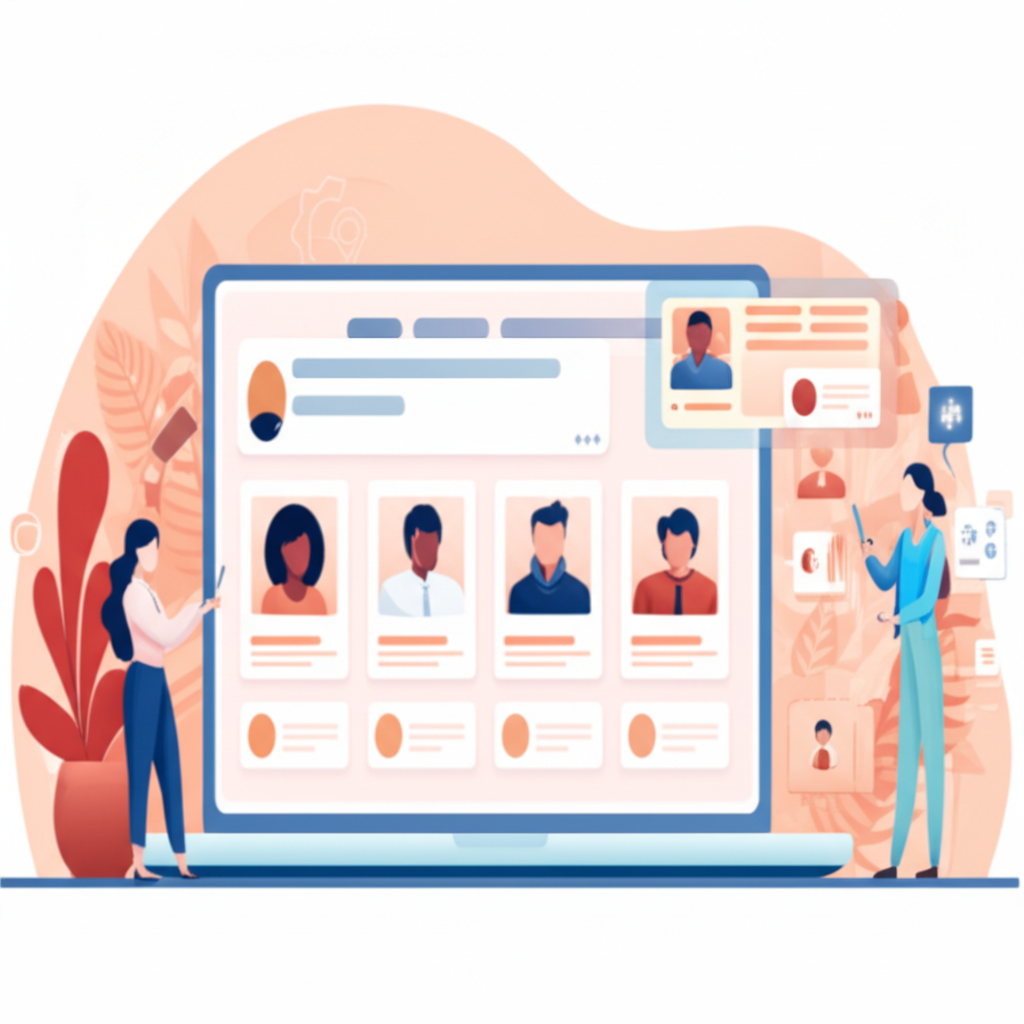AI in Recruitment: Balancing Innovation and Integrity for Future-Ready Teams
In my 25 years of navigating the entrepreneurial landscape, I’ve witnessed countless technological shifts, but few hold the transformative potential and intricate challenges of AI in recruitment. We stand at a precipice, where the promise of streamlined hiring, pinpointed talent, and reduced bias clashes with the specter of algorithmic discrimination and dehumanized processes. As Daniel Lee, I’ve learned that true innovation isn't just about adopting new tools; it's about mastering their dual nature. How do we harness AI's incredible power to find the best talent, from a bustling tech hub in Bengaluru to a startup in Silicon Valley, without inadvertently compromising the very human element that makes our teams thrive?
The Transformative Power of AI in Sourcing and Skills Analysis
From my vantage point, spanning continents and industries, AI isn't just a buzzword; it's a revolutionary force reshaping how we identify and engage talent. Gone are the days of manual resume screening, a process riddled with human fatigue and unconscious bias. AI now steps in as an indispensable ally, sifting through vast oceans of data to present us with diamonds in the rough.
Beyond Keywords: Intelligent Candidate Matching
Early in my career, I spent countless hours sifting through stacks of resumes, trying to match keywords to job descriptions. It was painstaking and often ineffective. Today, AI goes far beyond simple keyword matching. It employs natural language processing (NLP) to understand the nuance of experience, identifying transferable skills, potential, and even cultural alignment from diverse backgrounds – whether it’s a candidate from London with a unique startup journey or a seasoned professional in Dubai looking for a new challenge. This capability dramatically expands our talent pools, allowing us to discover exceptional individuals who might otherwise be overlooked by traditional, rigid filtering systems. It's about seeing the whole person, not just a list of qualifications.

Data-Driven Insights for Predictive Hiring
AI's ability to analyze patterns within historical performance data offers unprecedented predictive power. Imagine being able to forecast a candidate's potential success, their likelihood of staying with the company, or even their capacity for growth. This isn't science fiction; it's current reality. For years, I struggled with the high cost of mis-hires in nascent ventures – each bad fit setting us back not just financially, but culturally. We had to rely heavily on gut feelings, which, while sometimes right, were far from foolproof. AI, used judiciously, provides a layer of objective data that complements our intuition, helping us make more informed, less risky decisions. It acts as an early warning system, highlighting potential red flags or overlooked strengths, ultimately saving organizations across the United States, Europe, and Asia significant resources and accelerating team building.
The Shadow Side: Navigating AI's Risks in Recruitment
Yet, for all its brilliance, AI isn't a silver bullet. My journey through technology has taught me that every powerful tool carries inherent risks. The very algorithms designed to optimize can, if unchecked, introduce new forms of inequity or amplify existing ones. This is the dual nature of innovation: incredible opportunity hand-in-hand with profound responsibility.
Bias Amplification and Algorithmic Discrimination
Perhaps the most significant risk is AI's propensity to perpetuate and even amplify human biases. If an AI is trained on historical hiring data that reflects past discriminatory practices – whether conscious or unconscious – it will learn and replicate those biases. For instance, an algorithm trained predominantly on successful male engineers might inadvertently deprioritize equally qualified female candidates, especially in regions like India or the Middle East where certain demographic biases might have historically existed in specific sectors. This isn't AI being malicious; it's AI being an accurate reflection of the data it consumes. We must be acutely aware of this, especially when building global teams that demand diversity of thought and experience.
The Ethical Minefield of AI-Powered Interviews
The rise of AI-powered interviewing tools, which analyze everything from facial expressions to vocal intonation, presents another ethical frontier. While promising objective assessment, these tools venture into highly subjective territories. Can an algorithm truly gauge sincerity or cultural fit? What about candidates with neurodevelopmental differences, or those from cultures where direct eye contact might be less common? My concern, stemming from years of leading diverse teams, is that over-reliance on such technologies can strip the interview process of its essential human connection, leading to a sterile, even intimidating experience. It risks reducing complex human beings to data points, potentially alienating top talent in places like Australia or the UK who value authentic interaction.
Strategies to Mitigate Risks and Safeguard Human Judgment
The solution isn't to retreat from AI, but to engage with it intelligently and ethically. As leaders, our role is to sculpt technology to serve human values, not the other way around. My entrepreneurial philosophy has always been about building systems with integrity at their core.
Prioritizing Explainable AI (XAI) and Transparency
For AI to be a trusted partner, we need to understand its "thought process." This is where Explainable AI (XAI) becomes paramount. Rather than blindly accepting an algorithm's recommendation, we must demand transparency:
"Why was this candidate flagged?"
"What criteria led to this prioritization?"
Recruiters and hiring managers must be equipped to interrogate AI's output, understanding the rationale behind its suggestions. This fosters trust and provides a crucial layer of human accountability, especially when making critical hiring decisions across various regulatory landscapes in Europe or the US.
Diverse Data Sets and Continuous Auditing
To combat bias, we must feed AI diverse, representative data from the outset. This means actively curating training data that reflects the full spectrum of human talent, transcending gender, ethnicity, age, and background. Beyond initial training, continuous auditing of AI systems is non-negotiable. Regular, independent assessments by human experts can detect emergent biases or unintended discriminatory outcomes, allowing for immediate corrective action. Think of it as a constant quality control check, ensuring our hiring practices remain fair and equitable for everyone, everywhere.
Leveraging AI as a Co-Pilot, Not an Autopilot
This is perhaps the most crucial strategy. AI excels at processing large volumes of data, identifying patterns, and streamlining initial stages. It should, however, always function as a co-pilot, not an autopilot. In one of my early ventures, we faced a critical decision to hire a VP of Engineering. The data pointed to one candidate with an impeccable resume. But my gut, and a deeper conversation, revealed a profound misalignment in leadership philosophy. I overrode the "data-driven" choice, opting for a candidate who initially seemed less ideal on paper but resonated deeply with our culture and values. That decision, born of human intuition and empathy, proved pivotal for our company's success. AI can refine the initial candidate pool, but the ultimate decision, especially for roles requiring complex human interaction and strategic vision, must remain firmly in human hands. It’s about enhancing, not replacing, human judgment.
"AI in recruitment isn't about replacing the human touch; it's about amplifying human potential. It's our responsibility to ensure these powerful algorithms serve as ethical amplifiers of opportunity, not unconscious propagators of bias."
Building a Future-Ready Hiring Ecosystem with AI
As we look forward, the integration of AI into recruitment will only deepen. Our challenge and our opportunity lie in shaping this future consciously, ensuring that technology serves humanity's best interests. This requires a proactive, principled approach.
Actionable Steps for Ethical AI Adoption
- Define Clear Ethical Guidelines: Establish robust frameworks for AI use in recruitment, emphasizing fairness, transparency, and accountability across all global operations.
- Invest in Diverse AI Development Teams: Ensure the teams building and deploying these AI tools are themselves diverse, bringing varied perspectives to mitigate inherent biases in design.
- Prioritize Human-in-the-Loop Processes: Mandate human oversight at critical junctures, particularly in final candidate selection and where AI flags unusual patterns.
- Ensure Data Privacy and Security: Implement stringent data governance protocols to protect candidate information, adhering to global standards like GDPR in Europe or evolving privacy laws in India and the US.
- Provide Comprehensive AI Literacy Training: Educate recruiters, HR professionals, and hiring managers on how AI works, its capabilities, its limitations, and how to use it responsibly.
- Foster a Culture of Continuous Learning and Adaptation: The AI landscape evolves rapidly. Encourage ongoing research, pilot programs, and feedback loops to refine AI recruitment strategies continually.
The journey with AI in recruitment is not a sprint, but a marathon of continuous learning and ethical refinement. As Daniel Lee, I firmly believe that by embracing AI with intelligence, empathy, and a keen understanding of its dual nature, we can build recruitment systems that are not only more efficient and effective but also more fair and inclusive. The goal isn't just to hire faster or cheaper; it's to hire smarter, lead better, and cultivate truly exceptional, future-ready teams that thrive on human ingenuity. Let us champion an AI-powered future where technology empowers, rather than diminishes, the human spirit in our quest for talent.









